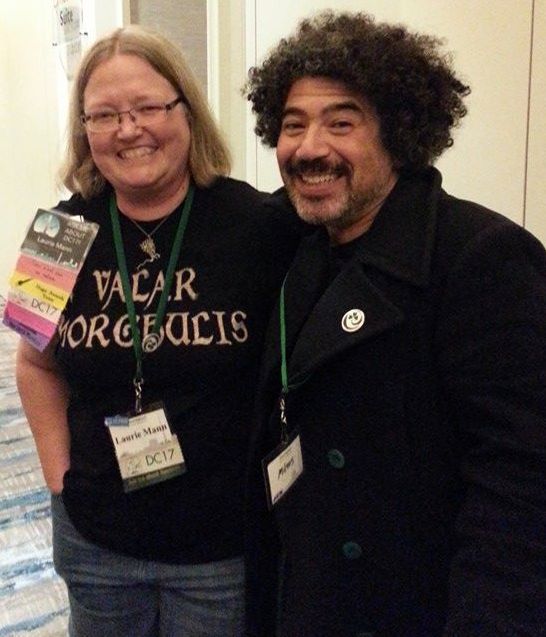Dead People Server
A Death Due to Governmental Stupidity
Dead People Server Sitemap
Peter McWilliams was a wide-ranging writer just under the radar of most American readers.
He sold millions of books since the late '60s, as a poet and essayist. I've found some of his
writing on depression to be helpful in dealing with some of my own depression. But my favorite
book of his is Ain't Nobody's
Business if You Do, a wonderful condemnation of the government's interference with
matters of personal choice (drug use, sexuality, et.c.). His discussion on the rise and fall
of hemp as a cash crop in this country was fascinating.
A few years back, Peter developed AIDS and lymphoma. He was on a number of drugs that made
him sick to his stomach and found that pot helped keep him from throwing up. While he was not the
first person to make this discovery, he was pretty open about his pot use. He helped
to write books on the virtues of medicinal marijuana and how to grow it. He was arrested,
convicted, and was awaiting a jail sentence. Peter was a California resident, and
he was arrested by the feds after the state passed a referendum to permit the use of marijuana for medical purposes.
He said he stopped using pot, and, instead, stayed in bed most of the
time in an effort to ward off the nausea.
Peter died at home on Friday, June 16, 2000. According to some sources, he choked to death while
he was vomiting. In short, he may have been killed by the federal government's "War on Drugs."
I don't believe in the public use of pot (heck, I'd like to ban cigarettes, but it's
quite clear that would lead to worse problems), but marijuana ought to be legalized for
private, personal use. Most reasonable people see the vast gulf between people lighting
up a joint and people shooting up heroin. Unfortunately, the federal government is not
reasonable about "the war on drugs."
Even if the government doesn't want to completely legalize pot use,
the government should permit it to be prescribed for medical reasons.
Morphine, an extremely dangerous and addictive drug,
is sanctioned by the government and is prescribed. I've seen it help a number
of people who were terminally ill. Marijuana, a not particularly dangerous
or addictive drug, should be too. Marijuana would be a particularly helpful drug because
it can actually help people get better, or at least feel better, without adding the
severe stupor that drugs like morphine can induce.
Document: A Death Due to Governmental Stupidity
Web URL: http://dpsinfo.com/dps/pmnote.html
Updated: 03/21/2019 10:23:52 |
|  |
Complete dpsinfo.com Sitemap * * To Top Of Page
 Website licensed under a Creative Commons License.
Website licensed under a Creative Commons License.




